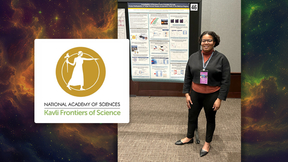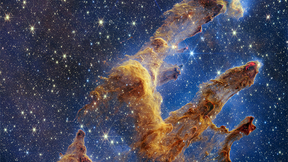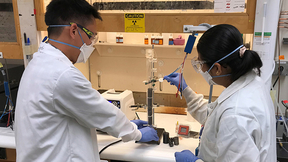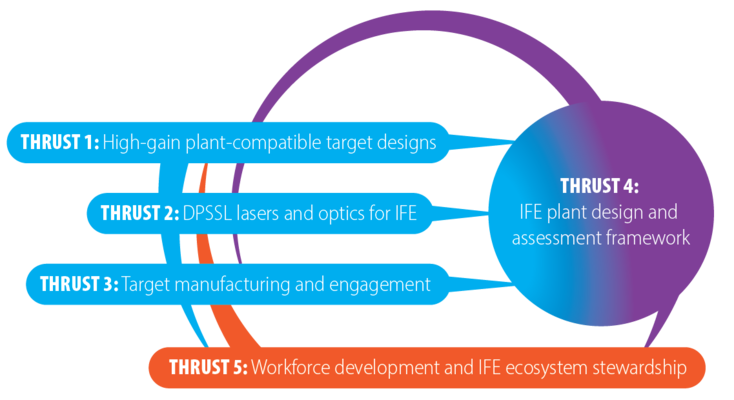LLNL-led team receives DOE Award to establish inertial fusion energy hub
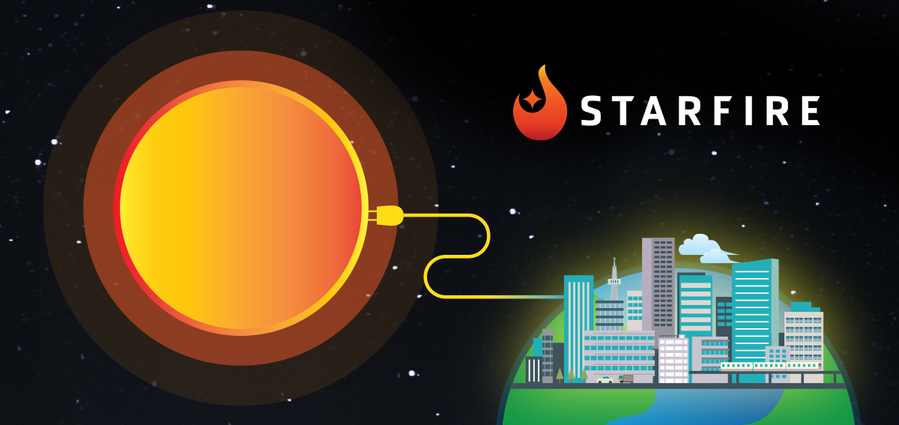 (Download Image)
(Download Image)
The newly established, LLNL-led IFE STARFIRE Hub seeks to accelerate scientific accelerate inertial fusion energy science and technology development.
The U.S. Department of Energy (DOE) has awarded a four-year, $16 million project to a multi-institutional team led by Lawrence Livermore National Laboratory (LLNL) to accelerate inertial fusion energy (IFE) science and technology. This effort will be carried out by the newly established IFE Science and Technology Accelerated Research for Fusion Innovation and Reactor Engineering (STARFIRE) Hub.
“The achievement of ignition at LLNL’s National Ignition Facility (NIF) provides fresh impetus and the scientific foundation for IFE,” said LLNL IFE Institutional Initiative lead Tammy Ma, principal investigator for the IFE Hub. “DOE’s IFE STAR program represents the re-establishment of the public U.S. IFE program, and we are incredibly excited to bring together an excellent team to advance fusion energy, in synergy with our stewardship mission.”
The IFE-STARFIRE hub will accelerate demonstration of high-gain target designs, target manufacturing and engagement and diode-pumped solid state laser technologies, with development of these technologies guided through an IFE-plant modeling framework. The project also will begin developing the workforce of the future for IFE through partnerships with leading universities and innovative new curriculum development and implementation.
“I am thrilled the Lawrence Livermore National Laboratory has been selected to receive $16 million to establish a national IFE STARFIRE Hub. The Inertial Fusion Energy Science and Technology Accelerated Research (IFE-STAR) program will help enhance global energy security and continue the progress and breakthroughs in scientific advancements made by the Lawrence Livermore National Laboratory,” said U.S. Representative Eric Swalwell.
“This action from the Department is an important step to accelerate the advancement of inertial fusion energy solutions. I was happy to join the Secretary when she launched the IFE-STAR program during a celebration of the breakthrough achievement of fusion ignition at the National Ignition Facility last year. I am happy to see these research hubs launched across the country today,” said U.S. Representative Zoe Lofgren (CA-18), Ranking Member of the U.S. House of Representatives Committee on Science, Space, and Technology. “I have been a strong advocate for the establishment of this very program for well over a decade. I’m encouraged that the Department is now following through on the strong direction provided by Congress in the bipartisan Energy Act of 2020 and the CHIPS and Science Act and look forward to continuing to track the progress of each of these impressive research teams.”
Supported by the DOE Office of Fusion Energy Sciences (FES), this project will establish the foundational S&T for a broad range of laser-based inertial fusion approaches, help cement synergistic partnerships between FES and the National Nuclear Security Administration on IFE and support DOE’s public-private partnership Milestone-Based Fusion Development Program for the commercialization of fusion energy. The IFE-STARFIRE Hub will accelerate development of IFE and help solidify U.S. leadership in this critical energy technology of the future by bringing together and applying the extensive capabilities, expertise and knowledge developed over the past decades with forefront R&D in an inclusive and collaborative manner to support the entire community.
The hub consists of members from seven universities, four U.S. national labs, one international lab, three commercial entities, one philanthropic organization and three private IFE companies.
In addition to researchers from LLNL, other participants include General Atomics; University of California, San Diego; University of California, Berkeley; University of California, Los Angeles; University of Rochester; Massachusetts Institute of Technology; University of Oklahoma; Texas A&M University; Fraunhofer Institute for Laser Technology; TRUMPF Inc.; Leonardo Electronics US Inc.; the Livermore Lab Foundation; SLAC National Accelerator Laboratory; Oak Ridge National Laboratory; Savannah River National Laboratory; Xcimer Energy; Focused Energy Inc.; and Longview Fusion Energy Systems.
The LLNL-led hub is one of three projects totaling $42 million in funding selected via competitive peer review under the DOE Funding Opportunity Announcement for Inertial Fusion Energy Science & Technology Accelerated Research (IFE-STAR), announced at LLNL’s Ignition Celebration by Energy Secretary Jennifer M. Granholm.
Contact
 Patricia Koning
Patricia Koning
[email protected]
(925) 423-4332
Related Links
DOE Funding Opportunity AnnouncementLLNL’s Ignition Celebration
Tags
Lasers and Optical S&TEnergy
National Ignition Facility and Photon Science
Fusion
Featured Articles
